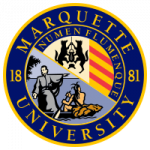Procedural Justice and International Dispute Resolution
As alternative dispute resolution continues to supplant trials within the United States, there has been a marked movement internationally towards greater reliance on formal adjudication to resolve disputes, especially in the areas of human rights violations and trade disputes. Although the domestic and international trends seem in opposition to one another, Andrea Kupfer Schneider argues in a new article that the two trends are actually both responsive to demands for procedural justice. Domestically, the flexibility of ADR gives litigants a greater sense of control over the process. Internationally, formal adjudication gives small nations and otherwise-marginalized communities and individuals better opportunitities to make their voices heard.
Andrea suggests that formal adjudication may be necessary to provide a sense of procedural justice in places where the rule of law is not well established. However, within the United States and other nations where the rule of law is better established, ADR becomes a viable alternative.
Although there seems to be an inevitable shift to consensual dispute resolution after formal adjudication mechanisms are set up, Andrea worries that this shift may sometimes happen too quickly, particularly with respect to human rights disputes — “consensual dispute resolution [may become] just another set of processes to be abused by those with power.”
This is just one dimension of the article, which contains many interesting reflections on the present and future of international dispute resolution. Entitled “Bargaining in the Shadow of (International) Law: What the Normalization of Adjudication in International Governance Regimes Means for Dispute Resolution,” the article is available here on SSRN. It was published at 41 N.Y.U. J. Int’l L. & Pol. 789. The abstract appears after the jump.
Five Students Weigh in on the Daunting Challenge That Is 1L
 If my Academic Support Program (ASP) orientation meeting was any indicator, new law students have a lot of questions, especially for rising second and third year law students, about what the first year will be like and what they can do to make it successful.
If my Academic Support Program (ASP) orientation meeting was any indicator, new law students have a lot of questions, especially for rising second and third year law students, about what the first year will be like and what they can do to make it successful.
This summer, I have had the opportunity to work alongside five very bright, hardworking student interns and was able to ask them about their first year experience. What is great about this group is that they come from a varied set of backgrounds, ages, sociopolitical views, and attend a variety of law schools—one at Franklin Pierce, one at University of Michigan, one at Harvard, and two at Chicago-Kent. I asked that they share their answers to a number of questions that I recalled were asked in my ASP orientation session. Those questions and a selection of their answers are below:

